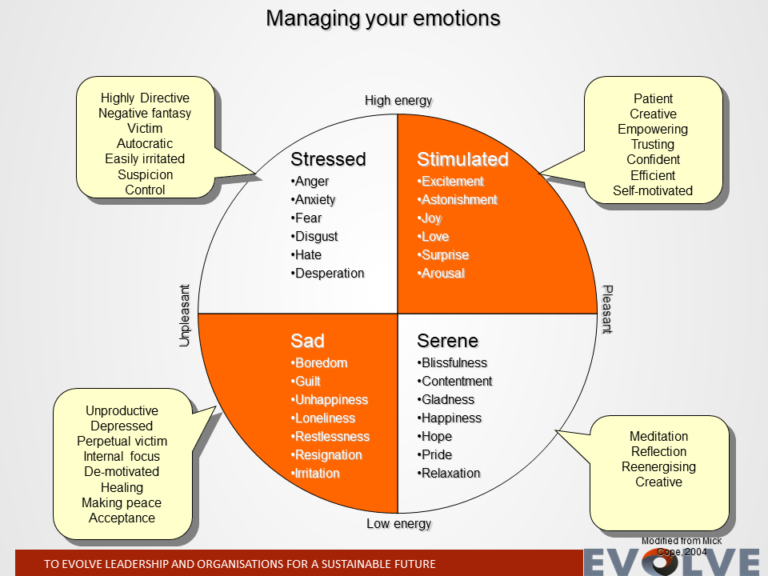A key factor in the success of modern leadership is learning to hold back personal assumptions and listening to the views of those that are able to deliver valuable input on a particular subject. This is a very difficult skill to master, as it necessitates that such leaders are able to trust first, believe in the potential of others and embrace the fact that their own personal view of the world may be skewed with their own subjectivity.
More traditional or directive leaders often feel that their style is participatory, but are sometimes shocked to hear that this is not what their subordinates think. Leadership rank tends to have a magnifying effect on their actions, and often limits the feedback given to them by others. Modern leaders need to learn skills such as coaching and facilitating in order to help enable their teams. Good coaching and facilitating requires the suspension of personal judgments while guiding others towards the best solution.
So why do we as people feel such anxiety when hearing views that contradict our own, particularly in the workplace? Can we learn to embrace differing views without anxiety? The normal human response is to avoid anxiety by taking input, but discarding many of the ideas proposed to us. Leadership behaviour such as this, in a team setting, could be described as energy-draining behaviour, and will result in decreased creativity and minimised team performance.
In order to better understand our own anxiety, it may be useful to consider the constructs of our brain. In our evolution as humans, we survived with the aid of our autonomic nervous system also known as the limbic brain, the most primitive part of our brain. At times of danger, this limbic brain would produce the emotions of fear and anger which would trigger a chemical change in our bodies to prepare us for “fight or flight”. Later in our evolution we developed the cortex, housing the Central Nervous System and we became more intelligent beings.
Today our limbic brain is alive and well and unfortunately often confuses situations such as opposing views as life threatening situations. Our amygdala (part of the limbic brain) then starts to ready us for fight or flight and hence we feel anxiety. The limbic brain cannot be trained through cognitive learning, but through experience, reflection and trial and error. Daniel Goleman tells us that many of these skills are first learned through our experiences by the age of 22 years, but we can continue to learn them with age, it just takes more effort. One could then say that leaders are not born, but developed, but certain people have more development to do than others.
It may be interesting to reflect that this complex post-modern world in which we live demands a new set of leadership skills that enables people at all levels, and liberates creativity within organisations. It is therefore no surprise to see that there is an increasing demand for executive coaching to assist leaders cope with complexity, anxiety and hence their emotions.

A good way to develop ourselves and “take charge” of our own minds starts with understanding our own emotions during the day. Ideally our organisations would like us to spend most of our time in the top right “stimulated” quadrant, for that is where we are efficient and creative. Once a person understands their “swings”, they can slowly start recognising their triggers and pull themselves back to the top right. Each time one manages to take control of ones anxiety, the task will become easier and easier.
It has been interesting for me as an executive coach to observe that many of the factors limiting leaders appear to be associated with the avoidance of anxiety. It would therefore be a huge advantage for leaders to learn to astutely observe their reactions to the surrounding world, and learn to understand and control their emotional responses thereto.